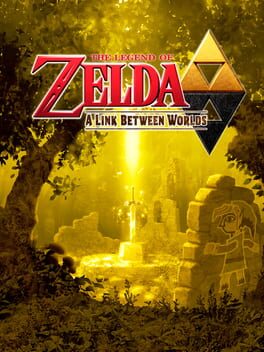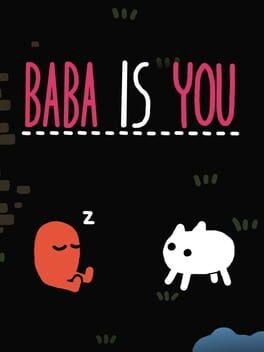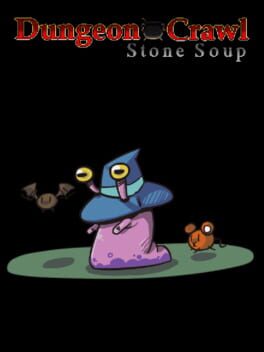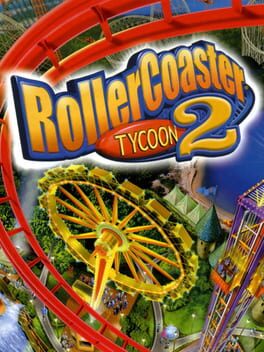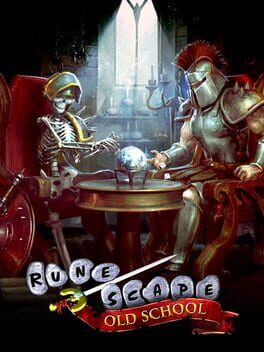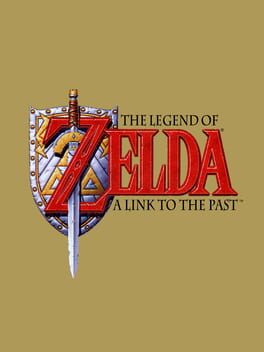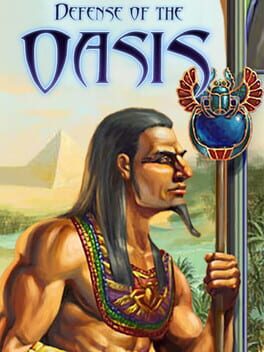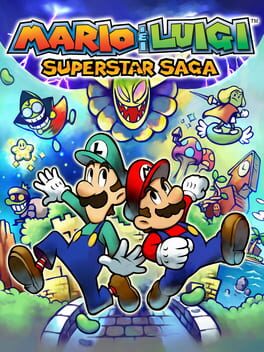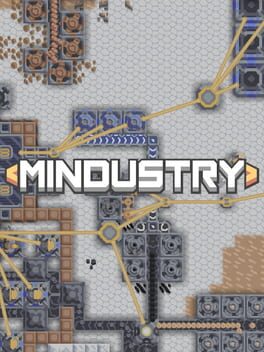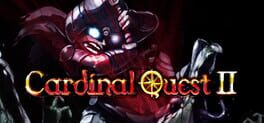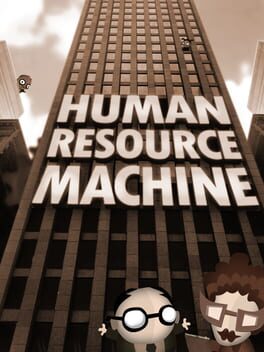Quink
Bio
Everyone needs a funny portmanteau of their name and 'Link' to use on old LoZ games.
🏳️⚧️🦈😷✨😸😸🪱💻📐🧶
they/them. late 20s. lesbian. runescape's favorite shark-headed adventurer.
Everyone needs a funny portmanteau of their name and 'Link' to use on old LoZ games.
🏳️⚧️🦈😷✨😸😸🪱💻📐🧶
they/them. late 20s. lesbian. runescape's favorite shark-headed adventurer.
Badges

Busy Day
Journaled 5+ games in a single day

On Schedule
Journaled games once a day for a week straight

N00b
Played 100+ games

Roadtrip
Voted for at least 3 features on the roadmap
Favorite Games
200
Total Games Played
000
Played in 2024
035
Games Backloggd
Recently Played See More
Recently Reviewed See More
Sunk a lot of hours into this. For a free game on mobile, it understandably doesn't have as much depth as some games. But it's still really fun and interesting. Clearly a lot of thought was put into the design. Every classic roguelike fan should consider giving this one a try.
Excellent mobile UI. I especially like the button always onscreen that you can touch and then touch any other thing on the screen and it will explain it for you. (As the name implies) this game is designed around having movement only in four directions instead of eight. This simplicity keeps the touchscreen input really easy.
This is a classic roguelike with all the typical features like permadeath, procgen, discretized time, and discretized space. It has procgen maps, but in defined linear series of maps that culminate in a boss fight. There are three map series that increase in difficulty, and each playable character has a different story explaining what they're doing in that area (entirely for flavor, but it's fun).
For a classic roguelike, the difficulty is very approachable. It has four difficulty levels and its three campaigns (plus infinite mode) of roughly increasing difficulty. There are many classes that each have a unique feel, and you can unlock tweaks to a class's rules that can dramatically change the feel of a run. With all that, you end up with a lot of replay value and ways to customize the difficulty to your preferences.
Character progression takes the form of equipment upgrades, active abilities (found on the floor or unlocked on levelup), and passive abilities (unlocked on levelup). There are different ability trees for each class, with a lot of choices for different builds.
Health is a limited resource. There is no passive healing. You are fully healed between areas. Much more interesting is the combat-based healing. Sometimes health orbs will pop out of an enemy during a fight, and you have to decide if it's worth it to run over to them before they despawn. In addition, each class has an unlockable-on-levelup additional way of healing within battle.
I really like how stealth works in this game. It's fairly simple, but being a sneak-attack rogue is a fun and viable option.
I don't like that it's tedious to finish up exploring a level. You get notified when all enemies are dead (as in, all the xp on the level claimed) and when all of the treasure is found. However it's frustrating to track down those last enemies and treasures with no autoexplore. Especially on levels with lots of los-obscuring bushes.
You have to unlock new classes with mtx or through play, but unlocking through play felt perfectly fair. I was able to unlock new things before I got bored of the old ones.
Excellent mobile UI. I especially like the button always onscreen that you can touch and then touch any other thing on the screen and it will explain it for you. (As the name implies) this game is designed around having movement only in four directions instead of eight. This simplicity keeps the touchscreen input really easy.
This is a classic roguelike with all the typical features like permadeath, procgen, discretized time, and discretized space. It has procgen maps, but in defined linear series of maps that culminate in a boss fight. There are three map series that increase in difficulty, and each playable character has a different story explaining what they're doing in that area (entirely for flavor, but it's fun).
For a classic roguelike, the difficulty is very approachable. It has four difficulty levels and its three campaigns (plus infinite mode) of roughly increasing difficulty. There are many classes that each have a unique feel, and you can unlock tweaks to a class's rules that can dramatically change the feel of a run. With all that, you end up with a lot of replay value and ways to customize the difficulty to your preferences.
Character progression takes the form of equipment upgrades, active abilities (found on the floor or unlocked on levelup), and passive abilities (unlocked on levelup). There are different ability trees for each class, with a lot of choices for different builds.
Health is a limited resource. There is no passive healing. You are fully healed between areas. Much more interesting is the combat-based healing. Sometimes health orbs will pop out of an enemy during a fight, and you have to decide if it's worth it to run over to them before they despawn. In addition, each class has an unlockable-on-levelup additional way of healing within battle.
I really like how stealth works in this game. It's fairly simple, but being a sneak-attack rogue is a fun and viable option.
I don't like that it's tedious to finish up exploring a level. You get notified when all enemies are dead (as in, all the xp on the level claimed) and when all of the treasure is found. However it's frustrating to track down those last enemies and treasures with no autoexplore. Especially on levels with lots of los-obscuring bushes.
You have to unlock new classes with mtx or through play, but unlocking through play felt perfectly fair. I was able to unlock new things before I got bored of the old ones.
The original music is amazing. Runs on any hunk of junk, which now includes any smartphone (with a surprisingly good touch interface) and doesn't use much of your data plan because it was designed to work on dial-up.
The economy is absolutely wild. Back in the day, some clan illegally cornered the market on ranarr weed, which meant prayer potions were prohibitively expensive for a noob like me, so it was really hard to beat Money Madness and unlock dragon scimitars. There are probably more bizarre get-rich-quick schemes in Runescape than in real life, and more of them at least kind of work.
The quests are very hit-or-miss. Some are hilarious and a delight to play. Some are slogs with stupid fiddly mechanics that everyone has to do to unlock essential gameplay.
I can not possibly rate this game. I'm too close. It's terribly grindy and doesn't respect your time at all. It's relaxing and has really engaging long-term strategy for your character. It's terrible. Maybe I should pick it up again.
The economy is absolutely wild. Back in the day, some clan illegally cornered the market on ranarr weed, which meant prayer potions were prohibitively expensive for a noob like me, so it was really hard to beat Money Madness and unlock dragon scimitars. There are probably more bizarre get-rich-quick schemes in Runescape than in real life, and more of them at least kind of work.
The quests are very hit-or-miss. Some are hilarious and a delight to play. Some are slogs with stupid fiddly mechanics that everyone has to do to unlock essential gameplay.
I can not possibly rate this game. I'm too close. It's terribly grindy and doesn't respect your time at all. It's relaxing and has really engaging long-term strategy for your character. It's terrible. Maybe I should pick it up again.
My grandfather's choice of favorite programming language was based solely on the criteria of which one would encourage writing "self-documenting" code instead of "spaghetti" code. Back then, that meant stuff like if statements and while loops instead of GOTO's. Playing this game makes me understand why that would be so important, because things can get messy fast!
In Human Resource Machine, you solve programming puzzles using a drag-and-drop, assembly-like language. It slowly introduces new concepts as the levels progress, interspersed with silly cutscenes that tell a story of tension between humans and machines in the workplace.
You watch your programs execute by watching a little person (your character) run around an office carrying little numbers from the inbox, doing something with them, and putting other little numbers in the outbox. Your only memory is what you're holding, but you can also set numbers down on the floor for later. You can speed up, slow down, and step through your code, like a debugger. A little business man sits at a desk and watches you, and you can click on him for hints.
It's all very adorable, and helps with the frustration of debugging both in how it visualizes things, and how silly the whole thing is when your little person throws some important result aside to grab the next one over and over because you forgot to add a command to put it in the outbox.
Each puzzle can be won by getting the correct values to the outbox, regardless of method or performance. However there two optional optimization challenges: one for program length, and one for average program duration. Often, they can not be solved at the same time. It was an excellent lesson for me of a computing concept I had previously known of, but now concretely understand.
Code editing with drag-and-drop can be tedious for someone used to typing, but the game has some ways to make it easier. You have three slots for programs on each level. (I like to use one for my first attempt, and one for each optimization challenge). You can copy paste between these, so you don't have to start from scratch if you're just doing a variation. Comments are available, and are hand-drawn with the mouse like little labels. Storage locations on the floor can also be labeled this way. My least favorite part of the code editor is scrolling. Drag-and-drop code takes a lot of vertical space, so it comes up a lot in the later levels. I've played this game on both desktop and tablet, and I prefer desktop for the ease of scrolling. It's not fun to try to scroll and accidentally mess up your code.
For a programming puzzle game, I think this is one of the less frustrating ones.
This is a wonderful game and I would certainly recommend it to anyone interested in getting better at reading through code, understanding low-level computing, or computer science history.
Be sure to also check out the sequel, 7 Billion Humans, which has a very different feel because the language is higher-level and you control swarms of little people in parallel, but has the same optimization and visualization strengths. I like this one better, but they're both worth your time!
In Human Resource Machine, you solve programming puzzles using a drag-and-drop, assembly-like language. It slowly introduces new concepts as the levels progress, interspersed with silly cutscenes that tell a story of tension between humans and machines in the workplace.
You watch your programs execute by watching a little person (your character) run around an office carrying little numbers from the inbox, doing something with them, and putting other little numbers in the outbox. Your only memory is what you're holding, but you can also set numbers down on the floor for later. You can speed up, slow down, and step through your code, like a debugger. A little business man sits at a desk and watches you, and you can click on him for hints.
It's all very adorable, and helps with the frustration of debugging both in how it visualizes things, and how silly the whole thing is when your little person throws some important result aside to grab the next one over and over because you forgot to add a command to put it in the outbox.
Each puzzle can be won by getting the correct values to the outbox, regardless of method or performance. However there two optional optimization challenges: one for program length, and one for average program duration. Often, they can not be solved at the same time. It was an excellent lesson for me of a computing concept I had previously known of, but now concretely understand.
Code editing with drag-and-drop can be tedious for someone used to typing, but the game has some ways to make it easier. You have three slots for programs on each level. (I like to use one for my first attempt, and one for each optimization challenge). You can copy paste between these, so you don't have to start from scratch if you're just doing a variation. Comments are available, and are hand-drawn with the mouse like little labels. Storage locations on the floor can also be labeled this way. My least favorite part of the code editor is scrolling. Drag-and-drop code takes a lot of vertical space, so it comes up a lot in the later levels. I've played this game on both desktop and tablet, and I prefer desktop for the ease of scrolling. It's not fun to try to scroll and accidentally mess up your code.
For a programming puzzle game, I think this is one of the less frustrating ones.
This is a wonderful game and I would certainly recommend it to anyone interested in getting better at reading through code, understanding low-level computing, or computer science history.
Be sure to also check out the sequel, 7 Billion Humans, which has a very different feel because the language is higher-level and you control swarms of little people in parallel, but has the same optimization and visualization strengths. I like this one better, but they're both worth your time!
